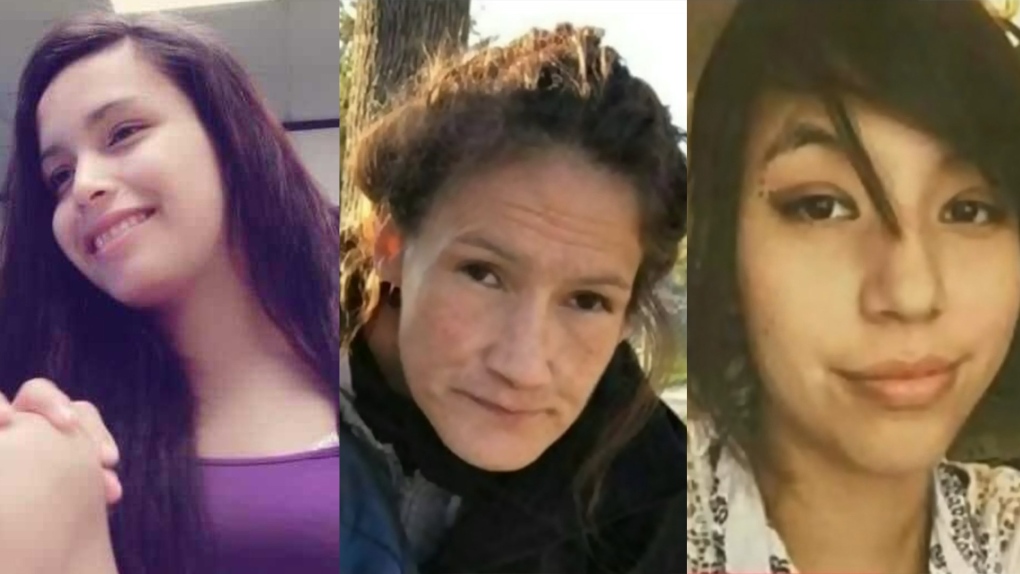‘Justice was served today’: Winnipeg serial killer Jeremy Skibicki convicted on four counts of first-degree murder
Warning: This article contains content that may be disturbing to readers. Discretion is advised.
A Manitoba judge has found serial killer Jeremy Skibicki guilty of four counts of first-degree murder, ruling he was not suffering from schizophrenia when he ‘mercilessly’ killed four Indigenous women.
A cheer erupted from the gallery of the courtroom in Winnipeg when Manitoba’s Court of King’s Bench Chief Justice Glenn Joyal delivered a summary of his decision Thursday morning.
It was words the friends and families of Morgan Harris, Marcedes Myran, Rebecca Contois and an unidentified victim given the name Mashkode Bizhiki’ikwe or Buffalo Woman have been waiting more than two years to hear.
“The accused Jeremy Skibicki stands convicted of four counts of first-degree murder,” Joyal said.
The 37-year-old man, who sat with his feet shackled in the prisoner’s box, remained quiet and showed no emotion as the judge delivered the verdict.
‘I killed four people’: Skibicki’s confession a key piece of evidence
During the trial, the court heard Skibicki preyed on his victims at homeless shelters, invited them back to his apartment where he abused them, often sexually, before defiling their bodies and disposing of them in nearby garbage bins and dumpsters.
“The facts of this case are mercilessly graphic – those facts were largely uncontested,” Joyal said, describing the crimes as jarring and numbing.
“It was admitted as fact the killings of all four women and the unspeakable horrors that were unleashed in those four killings were admitted by the accused.”
The investigation began on May 16, 2022, when a man looking through garbage bins in the North Kildonan area found a gruesome discovery – the partial remains of a woman later identified as 24-year-old Contois.
Skibicki was arrested that same day for her murder. While speaking with homicide detectives, he made a shocking confession.
“I killed four people,” Skibicki can be heard telling the detectives in a video recording of the hours-long interview.
 Rebecca Contois (left) Morgan Beatrice Harris (centre) and Marcedes Myran (right), along with a fourth unidentified woman referred to as Buffalo Woman (Mashkode Bizhiki’ikwe), have been identified as the four victims of Jeremy Skibicki. (CTV Winnipeg photo)
Rebecca Contois (left) Morgan Beatrice Harris (centre) and Marcedes Myran (right), along with a fourth unidentified woman referred to as Buffalo Woman (Mashkode Bizhiki’ikwe), have been identified as the four victims of Jeremy Skibicki. (CTV Winnipeg photo)
Portions of that video, in which Skibicki described the graphic ways he killed and defiled the women, formed a key piece of evidence in the trial.
“The statement was really the starting piece after Miss Contois’ body was found, and it really helped to prove the case the Crown had to prove,” said Crown prosecutor Renee Lagimodiere.
Joyal said while the details of each killing differ slightly, they all follow a general pattern: all four victims were vulnerable Indigenous women who frequented shelters.
“It is apparent from his confession with police that the accused is a man who clearly expressed racist views,” Joyal said.
While Skibicki confessed to the killings, his lawyers argued he should be found not criminally responsible for the deaths due to mental illness.
During the trial, the defence had relied on the evidence of a U.K.-based psychiatrist Dr. Sohom Das, who testified Skibicki had been hearing voices at the time of the killings – symptoms he said of a schizophrenic psychosis which rendered him incapable of knowing it was morally wrong.
Joyal rejected this evidence, finding ‘foundational deficiencies’ in the psychiatrist’s analysis – such as relying on Skibicki’s own assertions that he was being compelled by God.
Conversely, Joyal said he found the evidence of Crown-appointed forensic psychiatrist Dr. Gary Chaimowitz to be reliable, credible and extremely persuasive.
Chaimowitz had testified Skibicki had perverse sexual interests and was driven by homicidal necrophilia – sexual arousal to dead bodies. The expert testified he did not believe Skibicki had a major mental disorder, and Joyal agreed.
“The accused did not have a mental disorder such as schizophrenia,” Joyal said, rejecting the defence of not criminally responsible.
‘Justice was served today’: family
Leaving the courtroom, members of the victims’ family hugged the Crown prosecutors and thanked them.
The celebration spilled onto the steps of the courthouse, and later throughout downtown Winnipeg at Portage and Main. There they danced and drummed as they sang songs of healing and honour for the victims.
“I’m extremely happy and I feel like a weight has been lifted off my shoulders,” Myran’s sister Jorden said outside the courthouse. “Justice was served today.”
She said it was a flood of emotions after the verdict was read.
Contois’ brother Jeremy spoke surrounded by family. He said he hopes the sentencing will bring closure to his family.
“It’s been a difficult two years,” he said.
Impact statements from the family and friends of the victims are expected to be read at a sentencing hearing at a later date. First-degree murder convictions come with an automatic life sentence with no parole for 25 years.
There is a support line available for those impacted by missing and murdered Indigenous women, girls, and LGBTQ2S+ people: 1-844-413-6649.
The Hope for Wellness Hotline for Indigenous people, with support in Cree, Ojibway, and Inuktitut, is also available 24/7 in Canada at 1-855-242-3310.
View original article here Source









